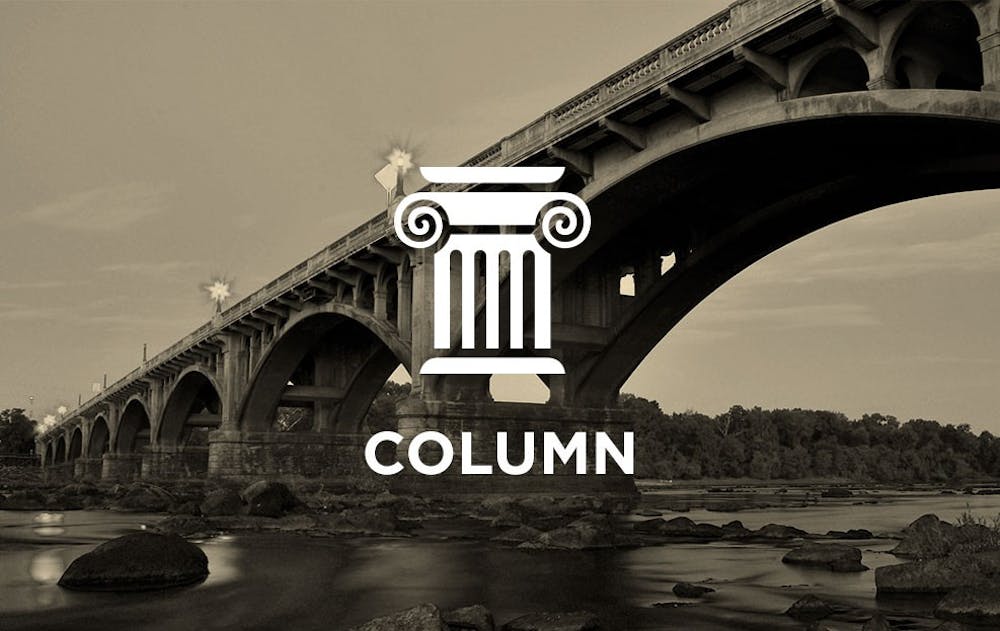This article is a response to Andy Wilson’s article entitled “Endangered species have no secular value” which appeared in the Sept. 6 paper.
Far too often the secular perspective (also known as physicalism) is disparaged unjustly. Many assume that physicalists have no source of morals, and are therefore depraved. Others confuse the utilitarian ethic with the egotistic and the arbitrary. Because of this and the well-meaning propaganda disseminated by local churches and religious organizations, I think it's necessary to clear up some of these disputes for the sake of the utilitarian, atheist, secularist or physicalist that begins to doubt his or her ethical fortitude.
Firstly, of course physicalists have a source of ethics, and that is science, not Darwinism. This may seem antithetical to those who believe evolution is a lie spread by the devil, or the crux of millennial ignorance, but on the contrary, science has taught us a lot of things about ethics. Perhaps among the most profound is the idea that organisms make decisions based on what will benefit them. Even seemingly selfless acts can be reduced to a simple and deterministic rush of pleasure-stimulating chemicals in the brain. Evolutionary psychologists would argue that this trait among emotional animals developed to facilitate intraspecies cooperation; “the group that thrives together survives together,” if you will.
From this principle of egocentric altruism, people can derive a very scientifically sound code of ethics called utilitarianism: the most good for the most people. Utilitarianism becomes necessary when our egocentric altruism runs out of those altruism, and drives us to things like jealousy and violence. When conflicts of interest arise, utilitarians merely extend their egocentrism, realizing that the best path forward is the one without violence and anarchy — a path that is safe for them, their belongings and posterity. They do this by saying, “hey, would you rather us both leave here with personal injuries and only one of us with what we want, or would you rather compromise so we can both get as much as we want without jeopardizing our health or the general welfare?”
As in the case of Mr. Wilson's article, an important assumption to avoid is that all physicalists are steadfast adherents to the utilitarian code of ethics. Because utilitarianism is an extension of egocentrism, sometimes utilitarians or physicalists do what’s best for the self and not for the group. Sometimes this works to his or her advantage and sometimes it doesn’t. In the event that it doesn’t, he or she was simply acting based on fallacy, and should have gone with the utilitarian decision, like not hunting Dodo birds to extinction for the immediate gratification of eating and instead leaving the ecosystem intact.
However, as it is in most cases, when physicalists err from the utilitarian path, it is because they have calculated that a purely selfish act will benefit them most. Of course this only matters when it negatively affects other people, but the utilitarian solution to this is to simply outlaw non-utilitarian decision-making. Outlawing non-utilitarian decision-making is ultimately the utilitarian decision because it prevents many people from being hurt by the hedonistically egocentric actions of those around them, the only sacrifice being the inability to take hedonistically egocentric actions themselves.
So according to science, physicalism and utilitarianism, endangered species (and everything else) do have worth in secularism, to the extent at which they benefit the society. If it turns out that letting an entire species of animals die is more beneficial to us than letting them live, then who cares? However, I would argue that this is almost never the case, given the fragility of our ecosystem and how beneficial its integrity is to us. And as a vegetarian (a moral conclusion to which I came via utilitarian means), I would say that compared to theists, physicalists have an even higher respect for other species by virtue of the fact that we do not arbitrarily view ourselves as having greater intrinsic value. For that matter, I would say that a true physicalist does not arbitrate value to anything, but rather derives it from utility. And if knowing the utility of various decisions and actions is the righteous path for a physicalist, then it would stand to reason that it is ignorance that has no worth in secularism, and not endangered species.

